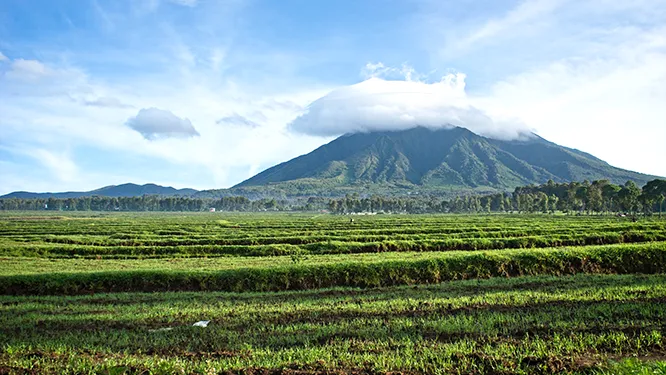Entering Rwanda in 2025
Rwanda, often called the “Land of a Thousand Hills”, is renowned for its breathtaking landscapes, mountain gorillas, and vibrant culture. With a streamlined eVisa system and tourism development policies, Rwanda has become one of Africa’s most accessible and welcoming destinations for international travelers.

Things to Know Before Entering Rwanda
Traveling to Rwanda can be an unforgettable experience, but preparation is essential to ensure a smooth journey. Here are the key points every traveler should know.
Visa & Entry Requirements
- From January 1, 2018, nationals of all countries can obtain a visa on arrival at Kigali International Airport and all land borders.
- However, to save time at the airport and ensure a smoother entry process, it is strongly recommended to apply for a Rwanda eVisa online before departure.
- Citizens of African Union, Commonwealth, and La Francophonie member states receive a 30-day visa on arrival free of charge.
- Citizens of East African Community (EAC) member states are granted an entry pass free of charge, valid for up to 6 months.
- Nationals from select countries—including Angola, Singapore, Qatar, and others—are eligible for a 90-day visa on arrival at no cost.
- Passports must be valid for at least six months beyond the date of entry and include at least one blank page for stamping.
Health & Vaccinations
- A Yellow Fever vaccination certificate may be required by Rwandan authorities.
- Malaria is present in Rwanda, including in Kigali. Travelers should take anti-malaria medication.
- Insect-borne diseases also occur. Make sure your residence is insect-proof and use insect repellent.
Laws & Local Customs
- Plastic bags are banned in Rwanda for environmental reasons. Bring reusable bags to avoid fines at the airport.
- To drive in Rwanda, you'll need both your home country driver's license and an International Driving Permit (IDP).
- Ask permission before taking photos of anyone. It's illegal to photograph Rwandan government buildings.
Safety
- February through May and September through December are the rainy seasons. Roads may become impassable due to mudslides and flooding. Build flexibility into your travel plans.
- Petty theft is uncommon but can happen. Keep valuables secure and avoid leaving items unattended.
- Some border regions may experience occasional instability. Travelers are advised to stay updated on local news and consider limiting travel close to these areas.

Rwanda Highlights
Capital: Kigali
CAT, UTC +2
Currency: Rwandan Franc (RWF)
Language: English, French, and Swahili
Highland, tropical
Best Time to Visit:
Popular Tourist Sites:

FAQs about entering Rwanda
1.
Do I need a visa to visit Rwanda?
Yes, all citizens except those from visa-exempt countries require a visa. While visas are available on arrival, applying for a Rwanda eVisa online is the recommended option as it saves time at the airport, ensures a smoother entry process, and gives you peace of mind before departure.
2.
How long does it take to get a Rwanda visa?
The Rwanda eVisa is usually processed within 5 working days. However, processing times can vary depending on the volume of applications. To avoid any delays, it is recommended to submit your application at least one week before your intended travel date.
3.
How many entries am I granted with a Rwanda eVisa?
A standard Rwanda eVisa is single-entry only, meaning if you leave the country and wish to return, you will need to apply for a new visa. However, if you hold an East Africa Visa, you are allowed multiple entries between Rwanda, Uganda, and Kenya within 90 days from the date of arrival.
4.
Do I need travel insurance for Rwanda?
No mandatory vaccinations are required for most travelers. However, a Yellow Fever vaccination certificate may be requested if you are arriving from or transiting through a country with yellow fever risk. It’s also recommended to consider protection against malaria before traveling.
5.
Can I work in Rwanda with an eVisa?
No, a Rwanda eVisa is strictly for tourism, short family visits, or transit. It does not permit employment or long-term residence. Travelers who wish to work in Rwanda must apply for the appropriate work or residence permit through the Directorate General of Immigration and Emigration.
6.
Can I use credit cards in Rwanda, or is cash preferred?
In Rwanda, both credit cards and cash are accepted. In Kigali and other major towns, credit cards are widely accepted in hotels, restaurants, and larger shops. However, cash in Rwandan francs is still the preferred payment method in rural areas and local markets. For convenience, it’s best to carry some local currency alongside your card.
Reliable & Up-to-Date Entry Information
To ensure accuracy, we regularly review and update our entry guidelines for Rwanda. All details are sourced directly from official Rwandan government institutions and immigration authorities, providing travelers with current and reliable information.
Source:
Rwanda Directorate General of Immigration and Emigration: https://www.migration.gov.rw
The official Government of Rwanda portal: https://www.gov.rw/
Connect With Us 24/7



